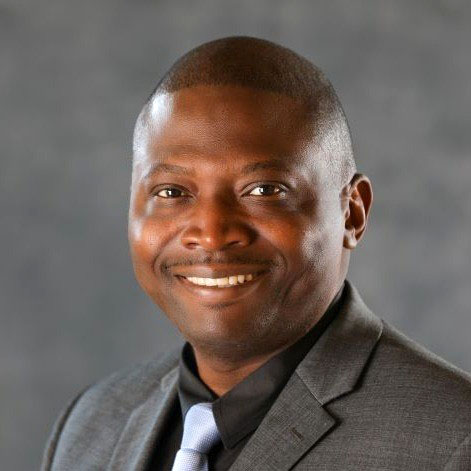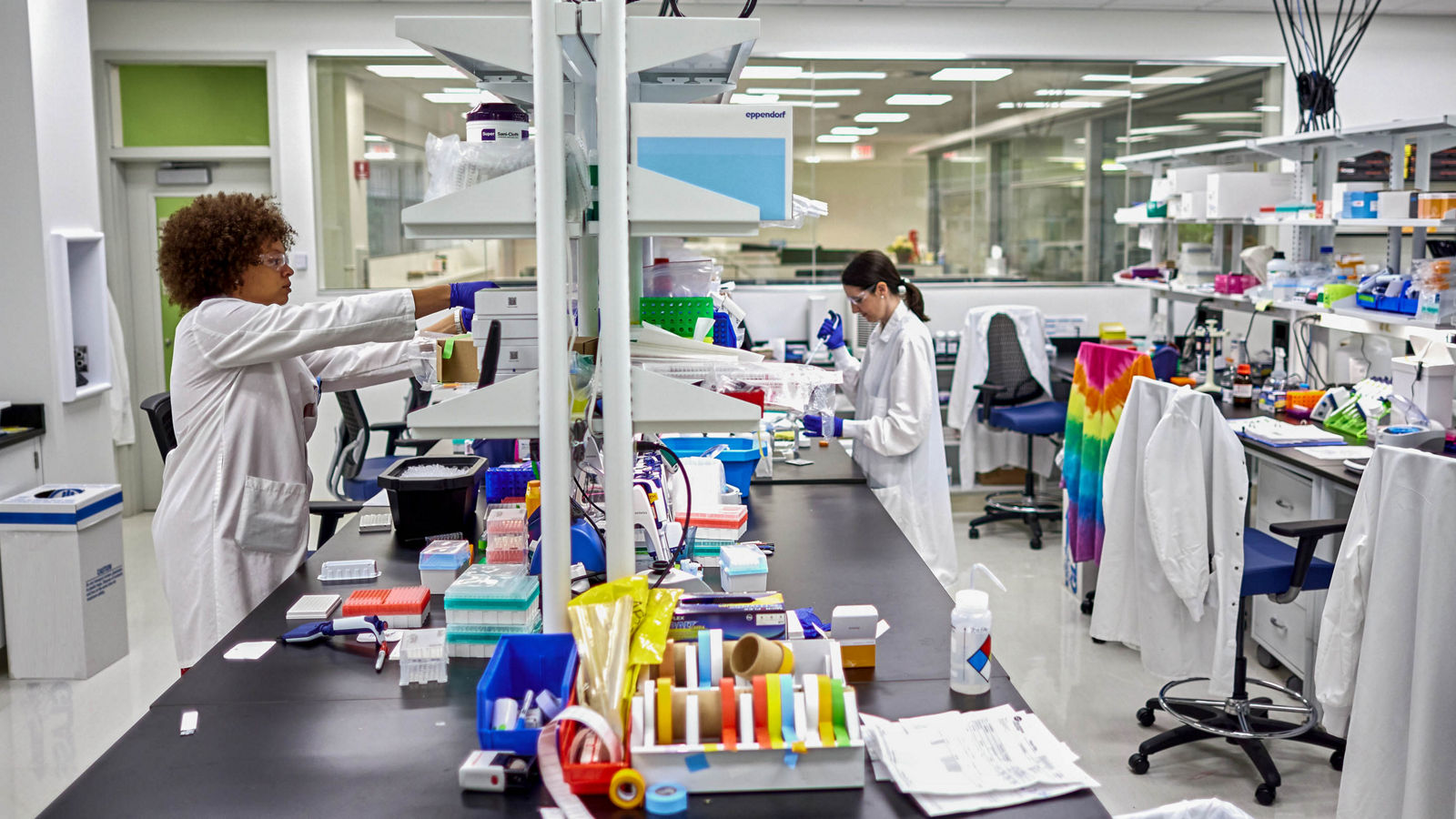Elevating Health Care for All
See how AbbVie goes beyond the numbers to increase representation in clinical trials.
Driving greater representation in clinical trials
Every person should have the chance to benefit from the medicines being researched and developed each day.
But how can we ensure this happens? One key way is by driving greater representation in clinical trials.
Because effects of medicines can vary based on age, race, ethnicity, sex, or other factors, having diversity in clinical research matters. Yet it’s often lacking, with many unrepresented communities wary to engage. Dr. Martins Adeoye, M.D. can understand why.
Early on in his career as a doctor in Nigeria and in the U.S., Dr. Adeoye heard of trials that had failed to give patients proper consent. Reading about participants’ experiences was shocking, he says, and not anything he would want for his patients, or any other.
As the only black psychiatrist in the Chicago neighborhoods he serves, Dr. Adeoye has spent decades caring for and building a good rapport with patients representing underrepresented populations. And after his site manager introduced him to the idea of clinical trials, Dr. Adeoye realized he could also be a part of making sure that clinical research is done the right way. The solution, in his eyes, was not to lean away from clinical research but to engage in it himself – and make sure his community’s voice and needs were heard along the way.
“The best way to ensure people have a different experience is to be engaged. And now I’ve opened my eyes to realize the role I can play and give a voice to other people as well,” he says.
Like Dr. Adeoye, AbbVie is committed to doing its part to drive greater representation in clinical research. How? By increasing diversity among investigators and clinical trial participants, and by putting clear plans in place to ensure trials are designed with intention to reflect the patient populations that will be treated. Here's how AbbVie's making progress on both fronts:
Engaging patients, physicians and community partners
Through AbbVie’s ADMIRE program (short for Advancing Diversity Matters through Inclusive Representation and Equity), the company works to improve underrepresented groups’ participation in clinical trials, increase diversity among investigators, and develop best practices for advancing health equity objectives.
Engaging patients, physicians as well as advocacy and community groups are core to the approach. Patients can get involved by becoming ADMIRE advocates to help destigmatize clinical research. Physicians like Dr. Adeoye can get engaged through the ADMIRE Pathfinder program, which supports health care providers’ journey to become clinical researchers. And with community and advocacy groups, ADMIRE plans on partnering and financially supporting initiatives designed to drive clinical trial diversity and inclusion.
123
physicians trained through the ADMIRE Pathfinder program to date
183
experienced sites onboarded in 2023, helping diversify AbbVie’s research sites
“Advancing diversity in clinical trials is about more than reaching patients, it’s also about connecting with health care providers as well as caregivers,” says Kim Ribeiro, head of diversity and patient inclusion, AbbVie.
“The main way people learn about clinical trials is through their health care provider. So when we talk about access to trials, we would be remiss to say that we want to increase patient diversity without saying that we want to increase representation among health care providers or the sites that conduct our trials, because they go together.”
Delivering impact through ADMIRE
Dr. Adeoye is one of dozens of physicians to complete the ADMIRE Pathfinder program and bring the knowledge, and its benefits, to his staff and community. With the support of his site manager, a former industry site monitor, Dr. Adeoye proactively sought out opportunities. Together they registered interest across different sponsor websites and AbbVie responded with an invitation to participate in the ADMIRE Pathfinder investigator training program.
Since finishing his training, Dr. Adeoye’s site has been approved to lead two upcoming clinical trials on behalf of AbbVie, creating new opportunities for these patients to access clinical research in a region local to them.
“As a new principal investigator, I didn’t think we’d be here 12 to 16 months ago, but it’s thanks to great partners like AbbVie that we’ve been able to reach this point,” Dr. Adeoye says.
Having spoken about the research opportunities upcoming, Dr. Adeoye says he’s received great support and feedback from both staff and patients alike.
“The staff is excited, and even our patients are excited,” he explained. “More than anything patients have been curious to know more about the opportunities that will be available, how they can support and how can they make sure the research is applicable, especially to minorities.”
Recognizing the need for minority representation at all levels within clinical research, and hearing the feedback from their community, Dr. Adeoye and his staff have also begun to think even more thoughtfully about what it will really mean to conduct studies in the right way, especially when engaging minorities and underrepresented peoples.
“There’s so many different layers to this that even I, as a principal investigator, am becoming more and more sensitive to, through this process,” he says.
Driving inclusion within clinical trial studies
While simultaneously reaching outward to communities, AbbVie also works internally to drive diversity and inclusion within its clinical development processes. One way teams do this is by developing therapeutic area diversity plans.
To date, teams at AbbVie have developed diversity plans that cover all of the therapeutic indications in the company’s portfolio. Their purpose? To get research study teams at AbbVie proactively building inclusive clinical programs at the outset of the clinical trial planning process.
Components of a clinical trial diversity plan
AbbVie uses clinical trial diversity plans to help design more inclusive clinical programs.
In building these plans, study teams do many things, including identifying health equity gaps in a given disease area and learning how they may impact enrollment goals. They also investigate study designs and protocols, to see if factors like eligibility criteria or the location of a trial, may impact the ability to include underrepresented populations. Additionally, teams analyze any data that could suggest a therapy for a given study would work differently in any given population.
With all the insights they gather, study teams then develop specific goals for enrolling underrepresented participants. Next, they create an action plan to detail measures for enrolling and retaining underrepresented participants and ensuring goals are being achieved.
"Whether you work at the research level or the community level, getting engaged is what counts,” says Adeoye. “Getting engaged, and working with partners that are really committed to makings happen, that's what will make the difference for patients."
Ribeiro agrees. “The meaningful difference we speak about doesn’t happen by magic. It happens through listening and taking action to break down the barriers to getting involved in clinical research. Sharing stories like Dr. Adeoye’s demonstrates the progress being made and our commitment to giving a voice to those experiences.”
Media inquiries:
[email protected]





